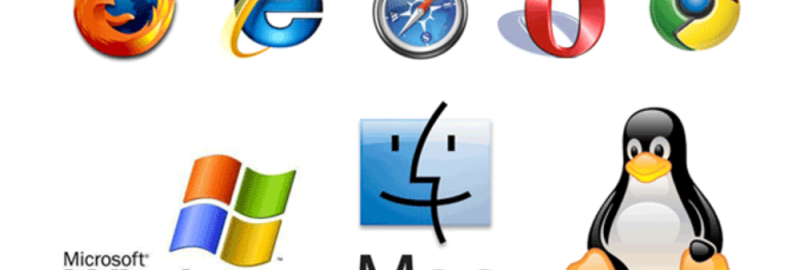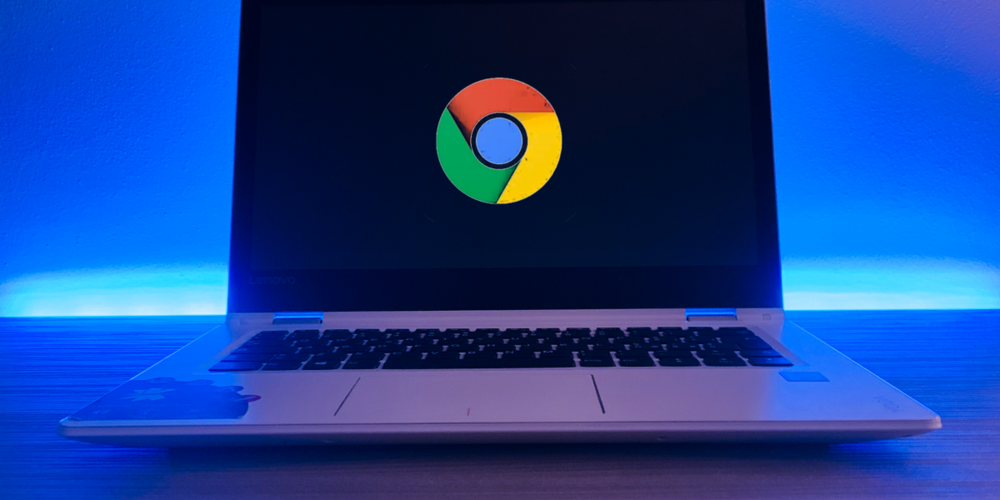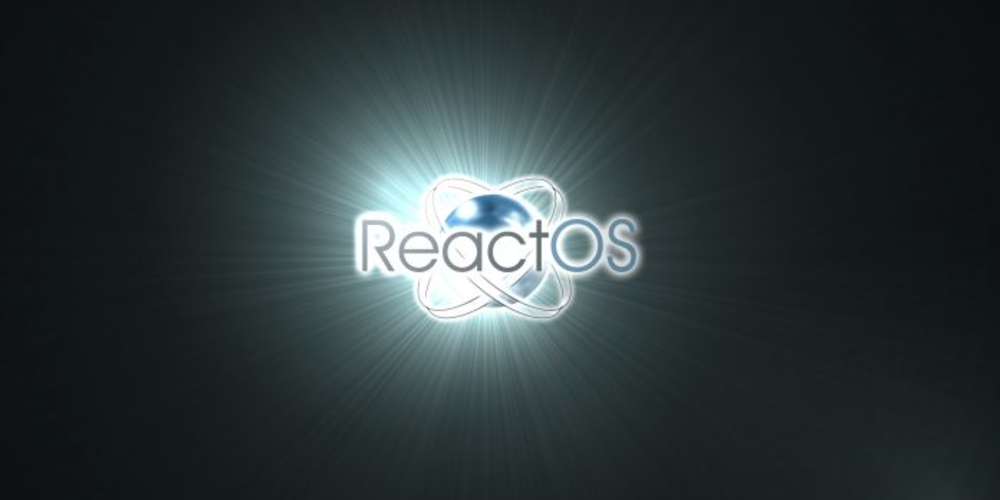
When it comes to choosing an operating system for your PC, Windows is often the default choice for many users. However, there are several alternative operating systems that offer a range of features, enhanced security, and increased customization options. This article will explore five of the best alternative operating systems to Windows, allowing you to choose the one that best suits your needs.
1. Linux: The Ultimate Open-Source Alternative

Linux is the most popular open-source operating system and is a fantastic alternative to Windows. It is available in a wide range of distributions, which means there is a Linux OS for every type of user, from beginners to advanced users. Some popular distributions include Ubuntu, Fedora, and Mint. Linux offers a high level of customization, allowing users to modify and tweak the OS to their preferences. Additionally, it is known for its excellent stability, performance, and security.
One of the main advantages of using Linux is that it is free and open-source. This means that users can access and modify the source code, allowing for a higher level of customization and control over their OS. Linux also has a large and active community of developers and users who continuously contribute to its development, ensuring that it is always up-to-date and improving. Furthermore, Linux is lighter on system resources compared to Windows, making it an ideal choice for older or less powerful hardware.
Linux also offers a vast range of free and open-source software, which can be easily installed through package managers or software centers. This means users can access a wide variety of software without the need to purchase licenses or subscriptions. Additionally, Linux is known for its excellent security, with fewer viruses and malware targeting the platform compared to Windows. This is due to its open-source nature and strong user permissions system, which helps protect the system from unauthorized access.
However, one of the main drawbacks of using Linux is that it can have a steeper learning curve compared to Windows, especially for users who are not familiar with command-line interfaces. Furthermore, some popular Windows applications may not be natively supported on Linux, although there are often alternatives or workarounds available. Overall, Linux is an excellent choice for users who want a highly customizable, secure, and efficient operating system for their PC.
2. macOS: The Sleek and User-Friendly Option
macOS is the operating system used on Apple's Mac computers and is a popular alternative to Windows due to its sleek design, user-friendly interface, and seamless integration with other Apple products. While macOS is not available for installation on non-Apple hardware, users can build a "Hackintosh" - a PC running macOS - with some effort and research.
One of the main benefits of using macOS is its ease of use, with a clean and intuitive interface that makes navigating the system simple and efficient. Additionally, macOS offers excellent integration with other Apple products, such as the iPhone and iPad, allowing for seamless file sharing, messaging, and more. This makes macOS an attractive option for users who are already invested in the Apple ecosystem.
Furthermore, macOS offers a range of high-quality, built-in applications for productivity, media consumption, and more. The App Store also provides access to a wide variety of third-party apps, both free and paid, making it easy to find the software you need. Additionally, macOS is known for its strong security features, with Apple continuously releasing updates to protect against new threats.
However, one of the main drawbacks of using macOS is its limited compatibility with non-Apple hardware. Building a Hackintosh can be a complex and time-consuming process and may require specific hardware components for the best compatibility. Furthermore, some popular Windows applications may not be available on macOS, although there are often alternatives available. Overall, macOS is a great choice for users who want a sleek, user-friendly operating system with excellent integration with other Apple products.
3. Chrome OS: The Lightweight and Web-Based Solution

Chrome OS is a lightweight, web-based operating system developed by Google, primarily for use on Chromebook devices. However, it is also possible to run Chrome OS on a PC using a virtual machine or by installing it on compatible hardware. Chrome OS is designed for users who primarily use web-based applications and services, making it an ideal choice for those who want a fast, simple, and secure operating system.
One of the main benefits of using Chrome OS is its simplicity and speed. The operating system is designed to be lightweight and efficient, allowing for quick boot times and smooth performance. Additionally, Chrome OS is built around the Google Chrome web browser, providing users with a familiar and intuitive interface for accessing web apps and services.
Furthermore, Chrome OS offers excellent integration with Google's suite of applications and services, such as Google Drive, Gmail, and Google Docs. This makes it an attractive option for users who are heavily invested in the Google ecosystem. Additionally, Chrome OS features a strong focus on security, with automatic updates and sandboxing to protect against malware and other threats.
However, one of the main drawbacks of using Chrome OS is its reliance on web-based applications and services. This means that users may need an internet connection to access certain features or software, although some offline functionality is available. Additionally, some popular Windows applications may not be available on Chrome OS, although there are often web-based alternatives or Android app support available. Overall, Chrome OS is an excellent choice for users who want a lightweight, web-based operating system with strong security features and integration with Google services.
4. FreeBSD: The Powerful and Advanced Option
FreeBSD is a powerful and advanced Unix-like operating system, known for its high performance, robustness, and stability. While not as user-friendly as some of the other options on this list, FreeBSD is an excellent choice for advanced users who want a highly customizable and efficient operating system for their PC.
One of the main benefits of using FreeBSD is its robust and stable nature, making it an ideal choice for servers, networking, and other mission-critical applications. Additionally, FreeBSD offers a high level of customization, allowing users to build a tailored operating system that meets their specific needs. This is achieved through the use of the Ports Collection, a vast library of software that can be easily installed and configured.
Furthermore, FreeBSD is known for its excellent performance and efficiency, making it an attractive option for users who want a fast and responsive operating system. The OS is also highly secure, with strong user permissions and a focus on maintaining a minimal attack surface. Additionally, FreeBSD has a large and active community of developers and users who contribute to its ongoing development and provide support through forums and mailing lists.
However, one of the main drawbacks of using FreeBSD is its steep learning curve, especially for users who are not familiar with Unix-like operating systems. Additionally, some popular Windows applications may not be natively supported on FreeBSD, although there are often alternatives or workarounds available. Overall, FreeBSD is an excellent choice for advanced users who want a powerful, customizable, and stable operating system for their PC.
5. ReactOS: The Windows-Compatible Alternative

ReactOS is an open-source operating system designed to be binary-compatible with Windows applications and drivers, making it an attractive option for users who want a Windows-like experience without the associated costs. While still in development and not recommended for everyday use, ReactOS shows promise as an alternative to Windows for those who require compatibility with Windows software.
One of the main benefits of using ReactOS is its compatibility with Windows applications and drivers, allowing users to run their favorite software without the need for a Windows license. Additionally, ReactOS features a familiar Windows-like interface, making it easy for users to transition to the new operating system.
Furthermore, ReactOS is open-source, allowing users to access and modify the source code for increased customization and control over their operating system. This also means that ReactOS is free to download and use, providing a cost-effective alternative to Windows for budget-conscious users.
However, one of the main drawbacks of using ReactOS is that it is still in development, meaning that it may not be stable or feature-complete enough for everyday use. Additionally, while ReactOS aims to be binary-compatible with Windows software, some applications may not work correctly or at all. Overall, ReactOS is an interesting alternative to Windows for users who want a Windows-like experience with the added benefits of open-source software.
In conclusion, there are several excellent alternatives to the Windows operating system for your PC, each offering its own unique features, benefits, and drawbacks. Whether you're looking for a highly customizable open-source solution, a sleek and user-friendly interface, or a lightweight and web-based operating system, there's an option out there to suit your needs. By exploring these alternatives, you can find the perfect operating system for your PC and enjoy an enhanced computing experience.